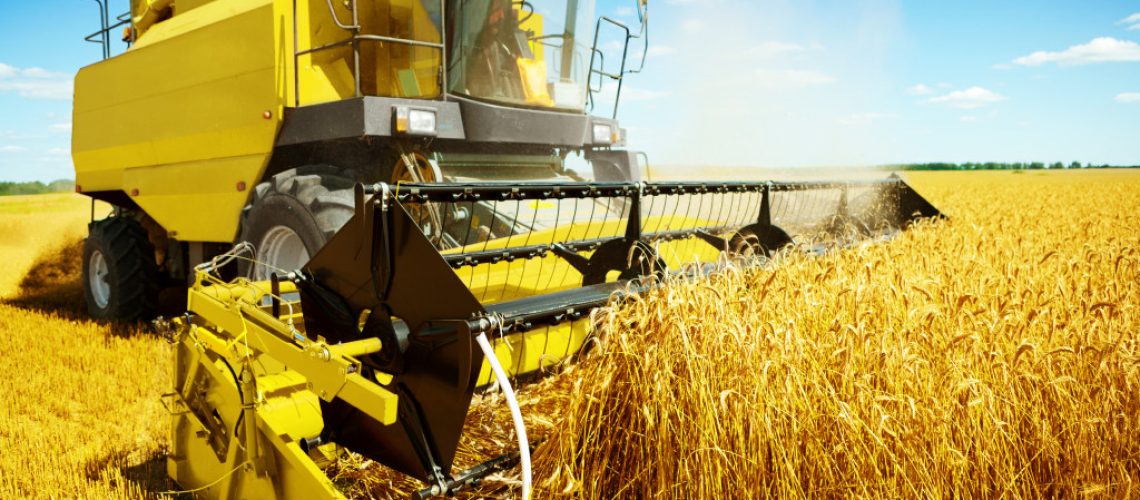- Heavy equipment has revolutionized agriculture, increasing efficiency and productivity.
- Regular inspection, cleaning, and maintenance are crucial to extending the lifespan of the equipment.
- Repairing and replacing heavy equipment when necessary ensure peak efficiency and productivity.
- Newer models offer increased efficiency and safety features, and government grants are available to assist low-income farmers.
Heavy equipment has revolutionized agriculture, increasing efficiency and productivity on farms worldwide. Using tractors, plows, combines, and other heavy machinery has made it easier for farmers to plant, harvest and transport their crops. The importance of heavy equipment in agriculture cannot be overstated, and the numbers back it up.
According to a report from the Association of Equipment Manufacturers (AEM), farm tractors and combines sales hit a new high. The report states that manufacturers sold 244,637 tractors in the US, up 3.6% from the previous year. There were also 4.6% more combines sold in 2019 than in 2018, with 4,776 units sold.
These sales numbers confirm the crucial role played by heavy equipment in agriculture. Modern tractors have features like GPS mapping and automated steering, which help farmers optimize their planting process and increase efficiency. Combine harvesters also have advanced technology, including automatic sensors that monitor grain quality and yield.
However, farmers must find ways to ensure that heavy equipment is always in good working condition. Here are a few steps to consider.
Inspection and Cleaning

The importance of cleaning and inspecting heavy equipment in agriculture cannot be overemphasized. Regular maintenance and cleaning can extend the lifespan of the equipment, improve its functionality, and ultimately increase productivity on the farm. Furthermore, ensuring that heavy equipment is in good working condition can limit the amount and cost of repair and replacement, thereby reducing downtime and saving costs. Below are four best practices for maintaining heavy equipment in agriculture:
Regular Inspection
Regularly inspecting heavy equipment is crucial to identify potential issues before they escalate into costly repairs or cause downtime. Farmers should regularly check equipment functionality, including the oil levels, hydraulic systems, and tire pressure. A more in-depth inspection schedule should be established, including post-operation checks, monthly or quarterly maintenance checks, and annual inspections.
Cleaning
Keeping equipment clean is vital for maintaining functionality and extending its usable life. Dirt and debris can accumulate in the equipment’s working parts, leading to rust, corrosion, and potential breakdown. Regular cleaning protects the equipment from harsh weather conditions, which can cause damage, especially during winter. Farmers should incorporate a daily or weekly cleaning schedule by pressure washing, scrubbing, or using air compressors to blow off dust and debris.
Greasing
Heavy equipment has many moving parts and joints that require proper lubrication. The lubrication prevents overheating, reduces wear and tear, and increases the equipment’s lifespan. Regular greasing should be included in the maintenance schedule, and the manufacturer’s recommendation for the appropriate type and amount of lubricant should be followed.
Record Keeping
Keeping accurate and up-to-date records of heavy equipment maintenance and repairs can be beneficial in various ways. The documents can help track maintenance costs, identify equipment failure or repair patterns, and adhere to the manufacturer’s warranty requirements. Record-keeping can be done either manually with logs or digitally using specialized software.
Maintenance and Repairs

The importance of properly maintaining and repairing heavy equipment in agriculture cannot be overstated. While the initial cost of purchasing this equipment may be high, it pales compared to the potential expenses of neglecting regular maintenance and repairs. Any agricultural operation that relies on heavy equipment must prioritize these activities to ensure that their equipment remains in good working condition and can continue functioning efficiently.
There are several reasons why maintenance and repairs are critical to the longevity of heavy equipment. First and foremost, proper care can extend the life of the equipment, reducing the need for costly repairs or replacement equipment. This results in reduced downtime and lower costs overall. In addition, regular maintenance and repairs can help ensure that the equipment is operating at peak efficiency, ultimately leading to increased productivity and profits for the farm.
For these reasons, farmers must keep their heavy equipment well-maintained and repaired. Fortunately, numerous agriculture equipment repair services specialize in competitively providing such services. Professional repair technicians can diagnose issues quickly and efficiently and provide the necessary parts and expertise to get your machinery back up and running as soon as possible.
Replacements
Unfortunately, despite the best efforts of farmers and repair technicians, some heavy equipment pieces may eventually need replacing. This can be due to age, mechanical or electrical issues, or other factors. In such cases, farmers should evaluate their options for replacing the equipment with a newer model better suited to their needs and budget.
Newer models of farm machinery offer increased efficiency and safety features, as well as improved fuel economy compared to older models. Furthermore, government grants are often available for low-income farmers who need assistance purchasing new equipment. Farmers should research these opportunities thoroughly before investing in the latest heavy equipment for their agricultural operations.
Final Thoughts
Heavy equipment has revolutionized agriculture and made it easier for farmers to increase efficiency, productivity, and profitability. Proper maintenance and repairs are crucial for keeping this vital equipment in good working condition while replacing outdated models can help ensure that the farm continues to run optimally. With the proper knowledge and resources, farmers can use heavy equipment to their advantage and maximize their operations’ success.

